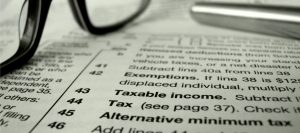If you’re emerging from this tax season exhausted by corralling and organizing receipts, guessing your car mileage and wondering whether you took full advantage of the deductions available to you, it might be time to upgrade your financial management process.
Why? Well, for starters, you’ll have more time to spend with clients (and thus make more money!) instead of managing the stress and headaches that come with wrangling receipts, spreadsheets and deductions. You’ll also more likely fly under the IRS radar — a blessing in its own right.
So, how do you achieve this stress-free tax life? Here are a few habits and tools you can add to your daily workflow that will make next year’s tax season a breeze.
Digitize your receiptsYou’ve heard this one over and over again like a tax-season mantra, “save your receipts.” However, if you’re keeping hard copies of your expenses and logging them into a spreadsheet, then it’s time to catch up to 2017. There are strategies — and apps — to help you.
QuickBooks Self-Employed, for example, allows you to connect your bank account or credit card to the application to automatically track business transactions and ensure they live in one place. It also allows you to snap a photo of your receipt with your smartphone to record and document an expense. You can toss the receipt and go on about your day confident that the expense has been stored and categorized for you automatically.
Automate your mileage trackingAs we all know, real estate agents drive, a lot. They drive to showings, to open houses, to listings, to pick up signs, to the office.
But guess what? If you take standard mileage deductions, every trip you take is deductible. The only catch is that each trip must be properly documented. Because tracking your mileage is required by the IRS in order to write your trips off, it’s your responsibility to know every business trip you take and its mileage. Recording these in a notebook to enter in a spreadsheet later is not only time-consuming, but leads to errors, not to mention a daily headache. Instead of this hassle, get an app that will automatically track your trips for you.
Most of these apps will begin tracking your trip as soon as you get in the car. When the ride’s over, just swipe left or right to categorize it as personal or business. Some tracking apps such as QuickBooks Self-Employed will even show how much money in deductions each trip is worth. An app like this is smart, because, let’s face it, if you struggled with your mileage this tax year, you’ll probably struggle next year, too.
Stay on top of quarterly taxesSelf-employment has many upsides. Keeping track of the complicated taxes associated with running a small business is not one of them. As you’re your own boss, you don’t deal with W2s. Instead, as a Realtor, it’s up to you, and you alone, to figure out how much you owe the government after every deal you do. If you keep your income and expenses up-to-date in your accounting software, you can more easily estimate your quarterly taxes, one of the persistent and important tax requirements for small businesses.
Tracking this income for tax purposes makes it even more essential to remain extremely organized. Your best bet is to find an accounting software designed to meet the specific needs of Realtors.
Stay organized now to eliminate the stress from next year’s tax season.
Source: click here














